Faith and the candidates
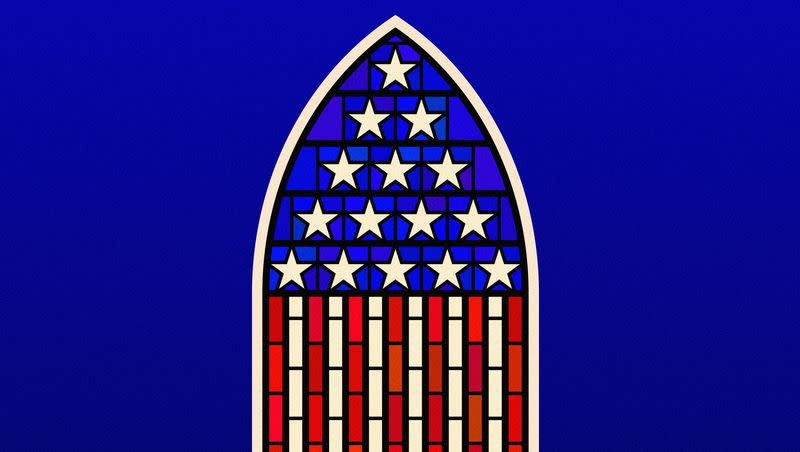
- Oops!Something went wrong.Please try again later.
- Oops!Something went wrong.Please try again later.
- Oops!Something went wrong.Please try again later.
Editor’s note: Former Vice President Mike Pence announced Saturday that he was suspending his presidential campaign.
Every U.S. president in modern memory has expressed, on the campaign trail and in office, his faith in God.
“If we ever forget that we are one nation under God, then we are a nation gone under,” said Ronald Reagan, with characteristic wit. “Freedom is not our gift to the world,” explained George W. Bush, “it is God’s gift to humanity.” And Barack Obama reminded us, “Our job is not to ask that God respond to our notion of truth. Our job is to be true to Him, His word, and His commandments.”

Yet there are signs that religious faith is waning in the very nation those presidents once led. According to Gallup, 81 percent of adults in the U.S. now believe in God; that’s a drop of six percentage points from just six years ago. In fact, it’s the lowest recorded percentage since Gallup first offered the survey nearly 80 years ago. Other data reaches a similar conclusion.
What do these numbers mean for those vying for the Oval Office right now? If the country is turning less religious, are the candidates too? Or does devoutness still equal votes? We looked at all the major candidates who’ve announced their run for the office and measured their past statements and publicly known religious practices, and consulted scholars on the topic of piety and the quest for presidential power. All to provide a glimpse of the ways faith factors into the contenders’ campaigns — and how it might factor into their would-be term or terms in office.
Related
Why every candidate? After all, some may say that the primary is practically over, that when Americans vote in the general election on November 5 next year they’ll be choosing between the current president and his immediate predecessor. Though polling in the primary for the GOP nomination favors former President Donald Trump, there are some candidates eating away at his lead, even if others don’t stand a snowball’s chance in Florida of beating him. (The candidate gunning for the Democratic nomination against President Joe Biden or campaigning as independents are even longer shots.) But taken together, they all represent a snapshot of what faith looks like on the campaign trail in 2024 — and what it may take to hold the highest office in the land.
Joe Biden
Democratic Party
The 46th president started his inauguration day, January 20, 2021, attending mass at Washington’s Cathedral of St. Matthew the Apostle. Throughout his campaign against Trump, he’d made his Catholic faith central, quoting Catholic hymns, paraphrasing the Book of Ecclesiastes, calling his upcoming presidency a “time to heal.” And he’d attended mass regularly for decades, whether in D.C. or Delaware. The New York Times even called Biden “perhaps the most religiously observant commander in chief in half a century.” Yet when the subject of Biden’s faith surfaces, it inevitably leads to conflict.
Biden has said that because of his Catholicism, he is “not big on abortion.” However, he also believes that Roe v. Wade and the trimester-based regulatory framework it established was the best way to balance the interests of a growing fetus with a woman’s autonomy. But refusal to condemn all abortions placed him at odds with church leaders. Particularly the notoriously conservative U.S. Conference of Catholic Bishops, which in 2021 threatened to block Biden and other pro-choice Catholics from receiving Holy Communion — the fundamental sacrament of Catholic worship.
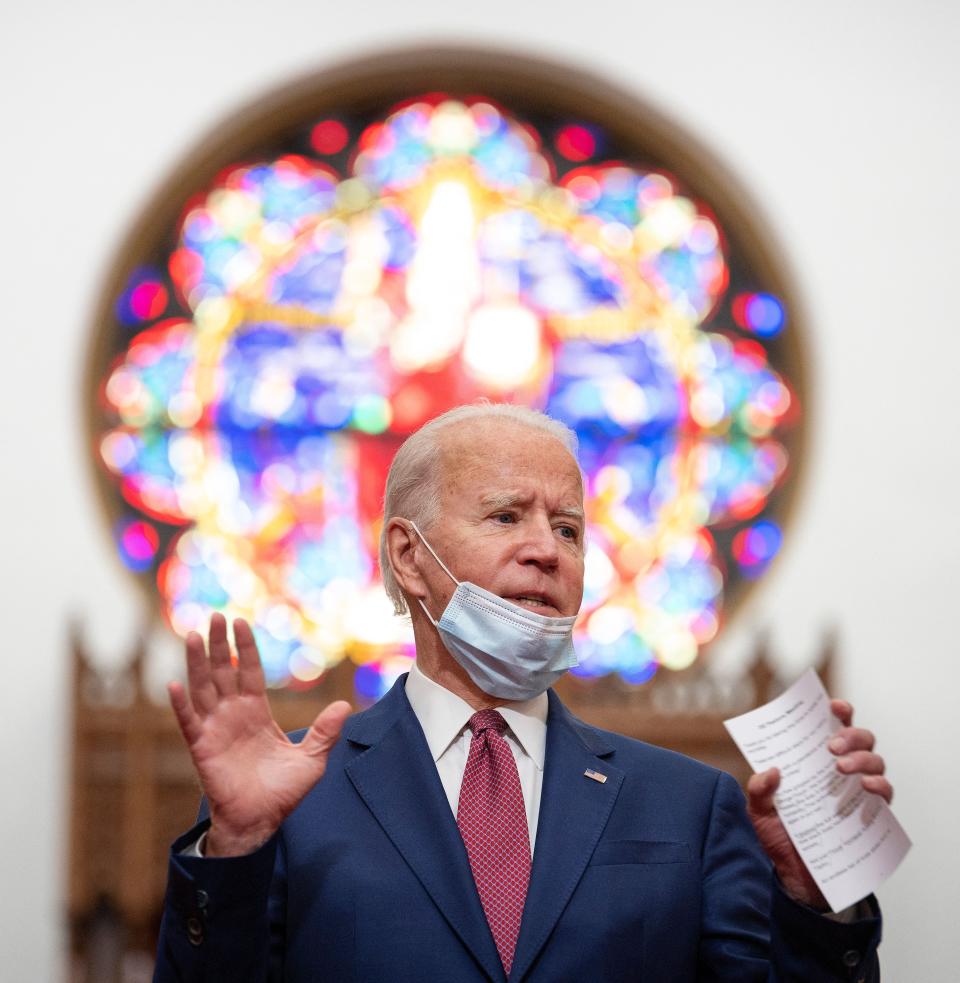
Despite explicit warnings from the Vatican to drop the cause, including Pope Francis himself preaching that communion “is not the reward of saints, but the bread of sinners” and telling Biden personally to continue receiving communion, the American Bishops pushed forward and in November 2021 released a statement called “The Mystery of the Eucharist in the Life of the Church.”
Biden’s refusal to condemn all abortions has placed him at odds with Catholic leaders.
The document stops short of universally banning communion for Biden and similarly “liberal” Catholics, but it does affirm the authority of individual bishops to do so. Biden had already been denied at least once before, at a South Carolina parish in 2019, and the archbishop emeritus of Philadelphia said in 2022 that Biden’s abortion views had placed him “not in communion with the Catholic faith.”
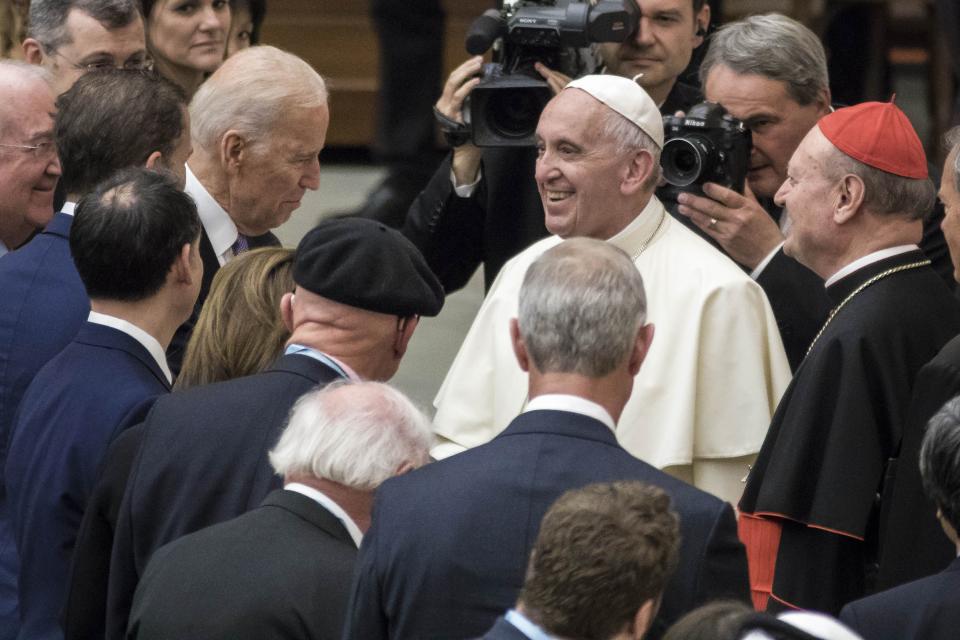
In part resulting from the controversy, 63 percent of Republicans believe Biden is not too religious, or not religious at all. Conservative influencer Franklin Graham has claimed that Biden has fallen under the sway of a “Godless agenda.” American Family Radio has labeled him “the Godless Joe Biden.” But for all the pushback, Biden regularly places his Catholicism at the forefront of his presidency. After finishing up mass at the Cathedral of St. Matthew the Apostle,
Biden delivered an inauguration speech that referenced St. Augustine (a distinctly Catholic, rather than Christian, figure) to define what it means to be American — a reference that could just as easily describe Biden’s relationship with his lifelong denomination: “(Augustine) wrote that a people was a multitude defined by the common objects of their love.”
— Ethan Bauer
Donald Trump
Republican Party
Of the dozen presidential candidates scheduled to speak at the Faith and Freedom Coalition’s policy conference in June 2023, none elicited the raucous fanfare the evangelical activists in the room afforded Trump. After walking onstage to a standing ovation that lasted more than three minutes, with Lee Greenwood’s “God Bless the USA” blaring over the cheers, Trump demonstrated why.
“As we gather today, our beloved nation is teetering on the edge of tyranny,” the former president said. “Our enemies are waging war on faith and freedom, on science and religion, on history and tradition, on law and democracy, on God almighty himself.”
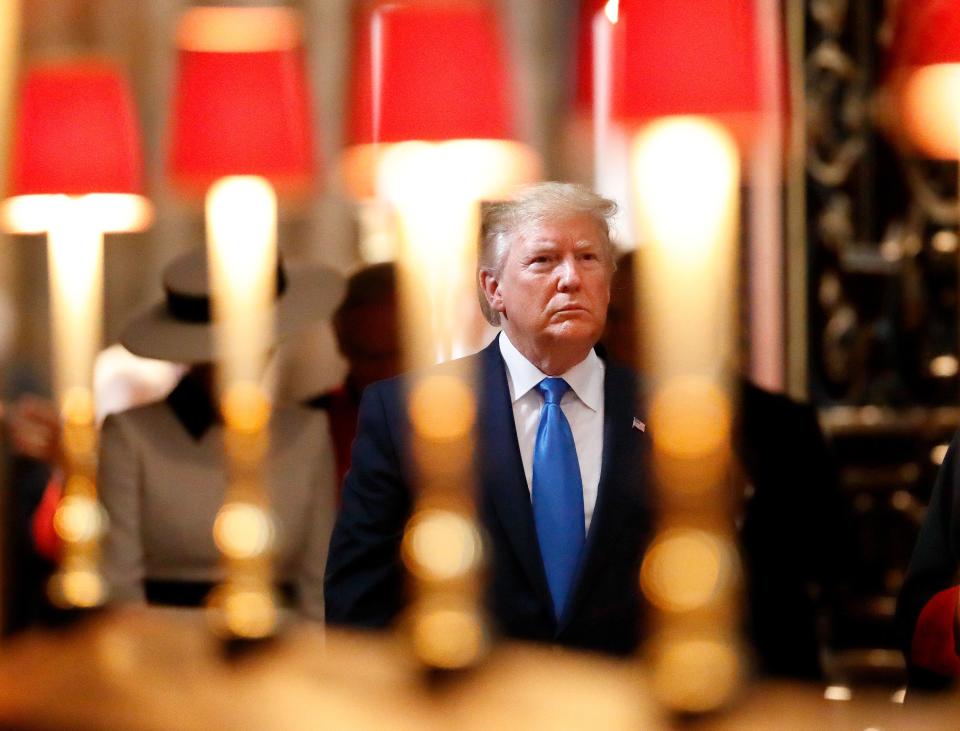
He asserted his stance as the “most pro-life president in American history” by referencing his conservative Supreme Court appointments, which made the overturn of Roe v. Wade possible and stripped constitutional protection for abortion. “No president has ever fought for Christians as hard as I have,” he added.
Trump’s deviation from the archetype of a polished politician has garnered him substantial support since he first ran for president in 2016 — his initial calls to “drain the swamp” even became a popular GOP rallying cry. But he also deviates from the partisan norm when it comes to faith.
Trump cemented a loyalty with white Evangelicals, not on the basis of a shared religious identity .. but instead, by emphasizing cultural grievances.
While he was raised and confirmed as Presbyterian, Trump announced in 2020 that he now identifies as a nondenominational Christian, which makes him one of only four presidents to do so, including Barack Obama, Rutherford B. Hayes and Andrew Johnson. Data from Pew Research Center that same year reveals half of American adults reported either feeling unsure of Trump’s religion or convinced he had none.
Yet he amassed avid evangelical Protestant support that remains present today. “Donald Trump demonstrated that white evangelicals as a voting bloc are more concerned about their issues than they are about the candidate’s identity,” says David Campbell, professor of American democracy at the University of Notre Dame. “He cemented a loyalty with white evangelicals, not on the basis of a shared religious identity, which is what previous Republicans like George W. Bush had done, but instead by emphasizing the cultural grievances that many white evangelicals have and promising to defend those positions.”
Despite facing multiple indictments and credible accusations of sexual assault, Trump is polling leaps and bounds above any other Republican candidate by at least 30 percentage points. And that may be due in part to his citation of God in public appearances, though it’s more likely because of a proven ability to push for policies evangelicals love. The overturn of Roe v. Wade, which evangelical activists had hoped for since its enactment five decades ago, being the most high-profile and lauded example.
“He’s shown a willingness to wrap himself in the flag and faith in many ways,” says Melissa Deckman, chief executive officer of the Public Religion Research Institute, a nonprofit that researches the intersection of religion, culture and public policy. “At the end of the day, the political calculus of what the policies look like is going to matter more.”
— Natalia Galicza
Ron DeSantis
Republican Party
The Florida governor’s faith has been a source of intrigue and mystery on the campaign trail. He is Catholic from birth, and in June, the Tampa Bay Times confirmed that DeSantis is still Catholic, and attends mass at various parishes around Florida’s capital city. However, he’s still not saying much about it — perhaps with good reason.
DeSantis has made no secret of trying to appeal to Evangelical voters, viewing them as key to securing the nomination. As a result, his faith talking points are often vague.
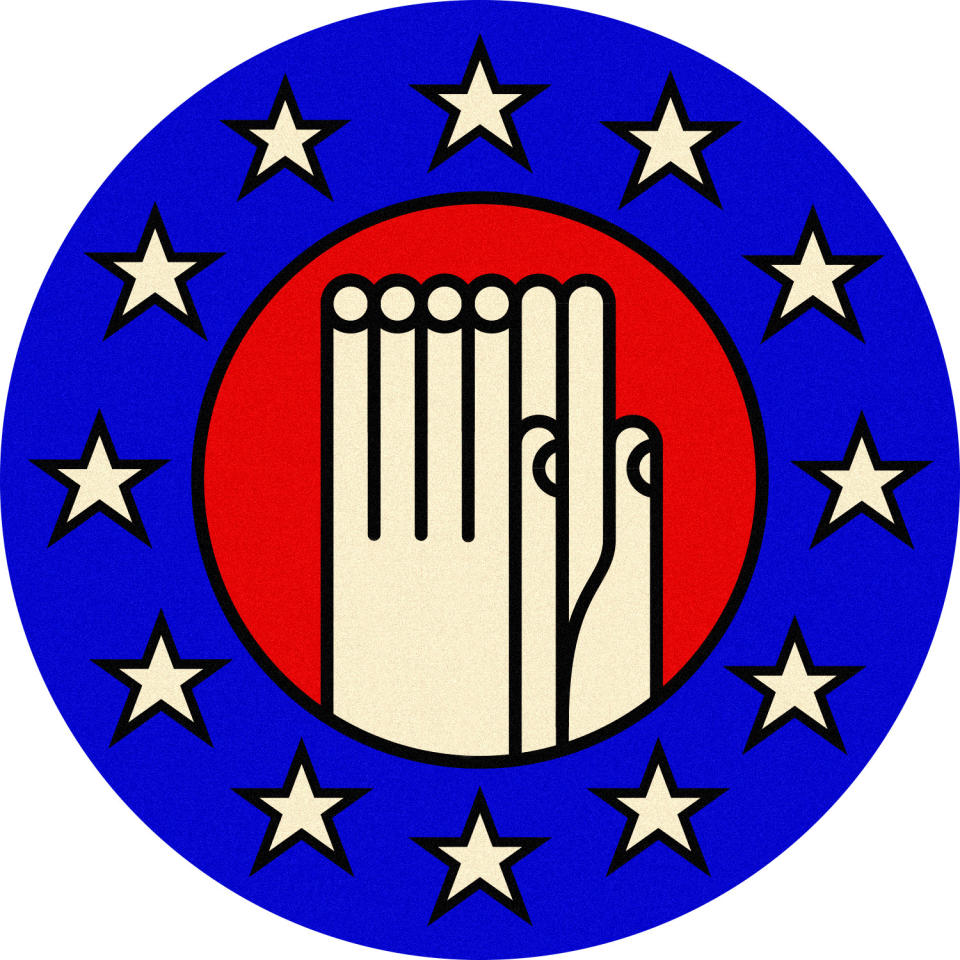
“Our household is a Christ-centered household,” he told the Christian Broadcasting Network in June. “We’re raising our kids with those values.” He also told the Pittsburgh Post-Gazette about leaning on faith when his wife was diagnosed with breast cancer in 2021. “We immediately turned to prayer,” he said. “I got faith in the big guy upstairs.”
DeSantis is similar to Biden in that he’s proven willing to go against church’s teachings to suit his politics. Biden, famously, does so on abortion; likewise, DeSantis’ views on the death penalty and migrants are not shared by the mainstream Catholic Church.
Nevertheless, DeSantis insists that his faith guides his politics. “My fighting faith is faith in God,” he said during a July speech to supporters in Salt Lake City. “Politics has a role, but I don’t think it should be the number-one divide in our country.”
— Ethan Bauer
Tim Scott
Republican Party
The South Carolina senator once said he would only run for president if he felt called by God. Finally, a few hours before his announcement, he says, he got the sign he was hoping for. “I heard the Lord speak to my heart and say, ‘This is not about you, don’t confuse it,’” he told the Christian Broadcasting Network. “‘You’re my vessel for this journey but it’s not about you. It’s about the American people.’”
When he did announce, he made that vision central: His campaign would be all about faith — “Faith in God, faith in each other, and faith in America.” That last phrase forms his campaign’s slogan.
Scott views his sincere Baptist faith as a major selling point compared to many rivals; he can quote scripture with the best ministers and preachers, and he does so often. His campaign’s announcement video promotes his first priority as defending “the Judeo-Christian tradition our nation is built on.”
Scott has experience doing that already; in the late 1990s, as a member of the Charleston City Council, he fought to display the Ten Commandments in the legislative building. He’s also at ease talking about the finer points of his faith, like distinguishing between Jesus as Savior and Jesus as Lord. “A Lord is how you live your life,” he said in a 2020 interview. “A Savior is where you go when it is over.”
— Ethan Bauer
Nikki Haley
Republican Party
The former South Carolina governor and ambassador to the United Nations has something to prove. Her policies and posture as a presidential candidate, sure. But also her faith. More than any of her GOP counterparts, Haley has faced ridicule and skepticism about the authenticity of her religious background. That skepticism has not reared its head much throughout the course of the current campaign, but its shadow nevertheless trails behind her.
The daughter of Indian immigrants, Haley was raised Sikh before she converted to Christianity. That conversion has been headline fodder (“Nikki Haley says she’s Christian, but it’s complicated,” “Is Nikki Haley a Christian?” and “Why I Don’t Believe In Nikki Haley’s ‘Conversion,’” to name but a few headlines) and a contentious topic among politicians. “Everybody knew she wasn’t a real Christian. Everyone knew she converted for political purposes,”
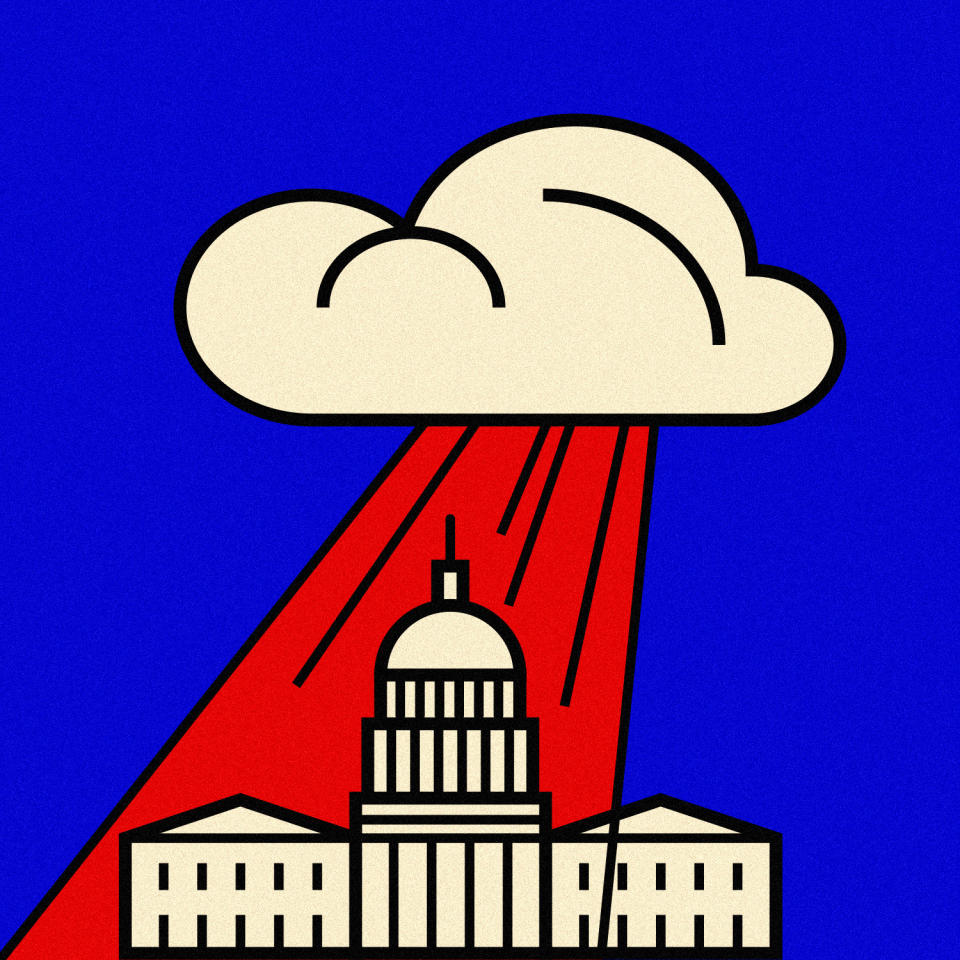
Jake Knotts, a former South Carolina senator, told Politico two years ago. “Her whole career has been stair-climbing, and becoming a Methodist was just one of those stairs.”
Though she doesn’t brandish her Christianity as much as some of her running mates, Haley still leans into her creed often.
She announced her presidential candidacy with a prayer led by prominent televangelist John Hagee in February, then praised the Christian Zionist, saying, “I wanna be you when I grow up.” Haley stresses her belief that America should return to a national purpose of faith, family and country. So while her roots differ, Haley’s Judeo-Christian view of the future appears to mirror that of other party members.
— Natalia Galicza
“It’s not that important anymore for the individual candidates to be believers. What seems to be more important is that they’re playing a political role that would be supportive of the conservative Christian in-group.”
The varied religiosity of the remaining GOP field
If there exists a litmus test that can gauge a Republican candidate’s success, that test would be one of faith. Pew Research Center reports more than 80 percent of Republicans identify under the umbrella of Christianity and almost 70 percent count the state of moral values among their primary concerns for the upcoming election. Religion is a hallmark for the party. Though its application changes with the landscape of religion in America in flux.
“There’s been a steady erosion of the influence of religion, the dominance of religion in American society,” says Paul Djupe, a political scientist at Denison University who specializes in religion and politics. For the GOP, that means consolidating religious voters under the banner of partisanship. So much so, the Republican nominee’s faith may not matter. “It’s not that important anymore for the individual candidates to be believers,” Djupe says. “What seems to be more important is that they’re playing a political role that would be supportive of the conservative Christian in-group.”
Which could point to why the Republican candidates are so diverse in their relationship to faith. Vivek Ramaswamy, a businessman who founded a pharmaceutical company, identifies as Hindu and speaks about his faith candidly. “I’m Hindu. I’m not Christian, and we are a nation founded on Judeo-Christian values,” he said in August.
“But here’s what I can say with confidence: I share those same values in common.” Even former New Jersey Gov. Chris Christie, who is Catholic, comprises a faith group that’s a minority in the Republican Party. Only two presidents have ever been Catholic; both were Democrats.
Other candidates like North Dakota Gov. Doug Burgum stand out for unusually absent religious transparency. Burgum more than likely leans Christian and certainly leans very conservative — he’s signed eight restrictive bills focused on transgender issues this year, as well as a religious freedom bill and a near-total abortion ban — but does not speak publicly of his faith.
Though there are still those who display a traditionally outward Christian identity. Former Arkansas Gov. Asa Hutchinson was reprimanded by Americans United, an organization focused on the separation of church and state, for posting too many Bible verses to his official social media accounts.
Businessman Perry Johnson told the evangelical crowd at the Faith and Freedom Coalition conference in June that he’s “probably too conservative for this group” and Jesus Christ is a huge part of his life.
Even Larry Elder, a conservative talk show host who speaks less of his convictions than Johnson or Hutchinson, has said “the Bible is the greatest piece of literature ever written. All your answers are there. … It’s the foundation of who and what I am.”
“The dominant component these days of the Republican Party,” says Djupe, “is catering to their conservative Christian constituency.” What connects all these candidates is their willingness to cater to an evangelical votership — even when their own faith may vary.
— Natalia Galicza
“Jesus does not fit under one particular school of thought, one ideology, one politics, because the love that he exemplifies is too rich and too deep to be contained by any human construction.”
Cornel West
Independent
No candidate in the 2024 field boasts more overt religious credentials than Cornel West. A professor of philosophy and Christian practice at Columbia University’s Union Theological Seminary, West has also taught religion at Princeton, Yale and Harvard, and co-founded the Network of Spiritual Progressives. As a Protestant in the Black Christian tradition, West has frequently criticized Christian nationalism.
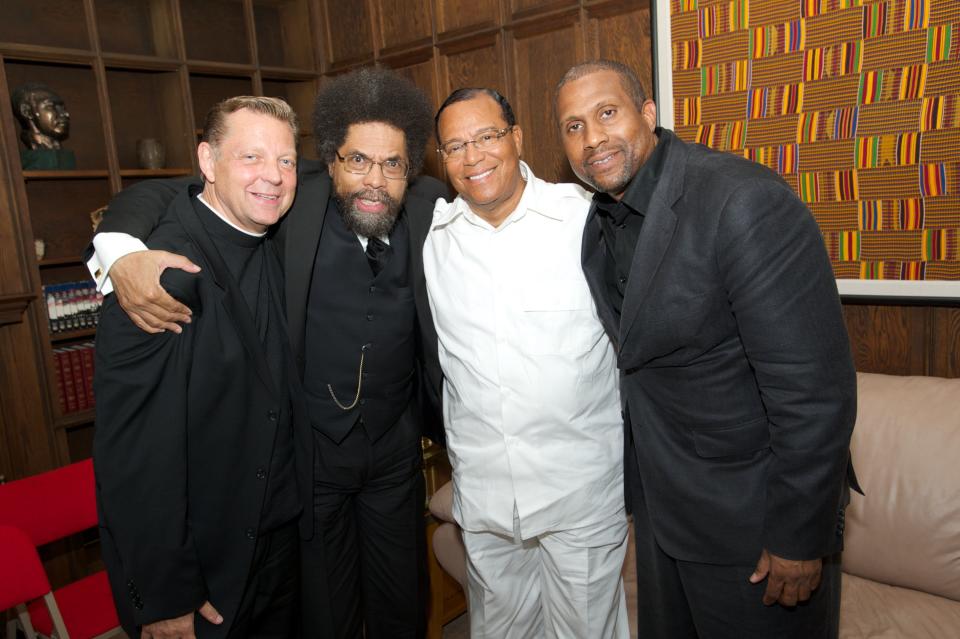
The independent candidate also expressed reverence for many religious traditions, including the Russian Orthodox Church and Islam, that prioritize a sense of spirituality and shared humanity outside financial gain and personal success, warning of the “commodification of everybody and everything” and offering spirituality as a means to combat it.
West defines himself as “a revolutionary Christian,” concerned with Jesus’ teachings on love and justice. “Jesus … does not fit under one particular school of thought, one ideology, one politics,” he told America Magazine in 2019, “because the love that he exemplifies is too rich and too deep to be contained by any human construction.”
—Ethan Bauer
Robert F. Kennedy Jr.
Independent
and Marianne Williamson
Democrat
Though Kennedy and Williamson were raised within religious traditions, both found their own way to God in adulthood.
For Kennedy, an independent candidate and nephew of the nation’s first Catholic president, that might sound surprising. His late father, former U.S. Attorney General Bobby Kennedy, has been described as the most-Catholic Kennedy.
“My father’s faith was the faith of Dorothy Day, of the Gospels,” his son would later tell Vatican News. “The church should be an instrument of justice and kindness around the world.” Kennedy has said he sometimes attended mass twice a day as a child, but as an adult, he struggled with drug and alcohol addiction for 14 years, causing him to stray from his faith. In a July 2023 interview with MIT research scientist and podcaster Lex Fridman, he said he was only able to overcome his addiction with God’s help. “I had a spiritual awakening, and my desire for drugs and alcohol was lifted. Miraculously,” he said. “And for me, it was as much of a miracle as if I had walked on water.”
Now, he added, every decision he makes has a moral dimension.
Williamson, the best-selling author and spiritual guru challenging Biden for the Democratic nomination, grew up in the Jewish tradition but she says she had her own awakening upon reading the 1976 book “A Course in Miracles.”
Written by a psychology professor who believed it had been dictated to her by Jesus, the book is not explicitly Christian, but it borrows from the teachings of Jesus and other religious traditions to emphasize the spiritual power of love. Williamson built on this foundation in her own books, and eventually became spiritual adviser to Oprah Winfrey. In a 2012 interview, she defined God as “an all-encompassing love that is the source of the reality of all, and the being through which I am.”
Mother Jones has called her “the high priestess of pop religion,” but whatever one thinks of her beliefs, they’re undeniably the root of her campaign. She once likened her 2020 bid to the Biblical story of David and Goliath, where she would slay the giant of Donald Trump with a slingshot of love. In announcing her 2024 candidacy, she built on that theme. “It’s time,” she said, “for an awakening.”
— Ethan Bauer
This story appears in the November issue of Deseret Magazine. Learn more about how to subscribe.

